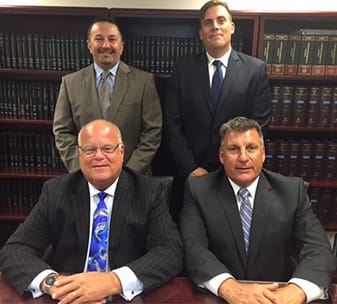Consider Bankruptcy to Discharge Credit Card Debt
When Congress’ recent revisions to federal laws governing credit card usage went into effect, some consumers saw interest rates double or even triple. The law now allows for credit providers to be more flexible with interest rate raises, provided they give the cardholders notice of the action and share information about the total amount of the debt and approximately how long it will take to pay it off.
The changes in the law were initially introduced as a way to protect consumers, but, in practice they are much more biased toward lenders. Following the enacting of those laws, more consumers burdened by credit card debt need help to get themselves back on the right track financially.
Although some people believe that debt management services like debt consolidation or by negotiation with creditors for more manageable payments will resolve their problems, most debt professionals believe that bankruptcy maybe the best option. Bankruptcy attorneys are quick to remind people in debt that debt settlement agencies are not regulated by the government and cannot guarantee favorable results.
In addition, the resolution of your liabilities in a bankruptcy proceeding will not result in a taxable event. Further debt settlements are a piece meal approach that many times is ineffective in resolving all debt problems. Bankruptcy on the other hand is a governed by federal law that grants debt relief. For many, bankruptcy is the best option.
How Does Bankruptcy Affect Credit Card Debt?
Different types of bankruptcy filings affect debt in different ways. Generally, credit card debt is unsecured, based only upon an obligation to pay. Secured debts, on the other hand, are based upon actual collateral, for example, a financed automobile or a mortgage on your home.
Chapter 7 bankruptcy involves the liquidation of non-exempt assets to pay off debt. Unless the bankruptcy court finds that a debtor has acted in bad faith while accruing credit card debt, it is usually dischargeable. It is harder to qualify for Chapter 7 bankruptcy protection since the law was revised in late 2005. However, despite the changes in the law, a vast majority of people do qualify.
Chapter 13 bankruptcy is different. Instead of focusing on liquidating assets to pay off debts, it focuses on paying down the debt over a period of time, typically lasting from three to five years. Certain debts (like child support, alimony, student loans and back taxes), cannot be discharged in bankruptcy. One of the best uses of Chapter 13 bankruptcy occurs when your home is in foreclosure; Chapter 13 permits you to pay back the arrears on your defaulted mortgage to save your home.
If you are concerned about the amount of debt you have, speak with an experienced bankruptcy attorney in your area to learn more about your legal rights and options.

